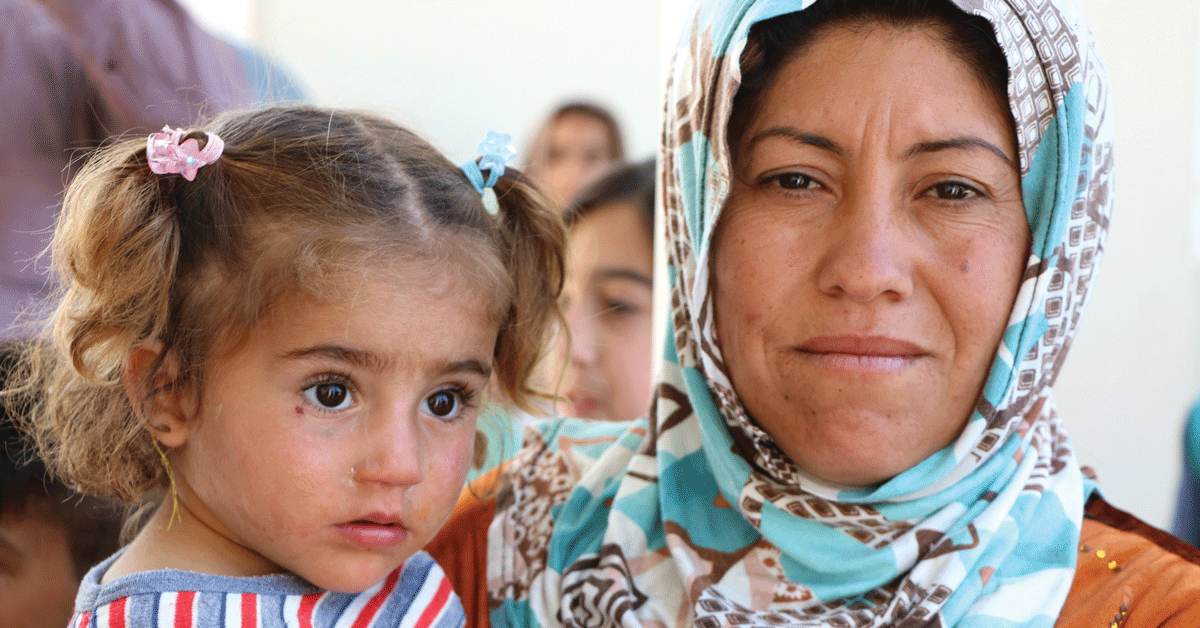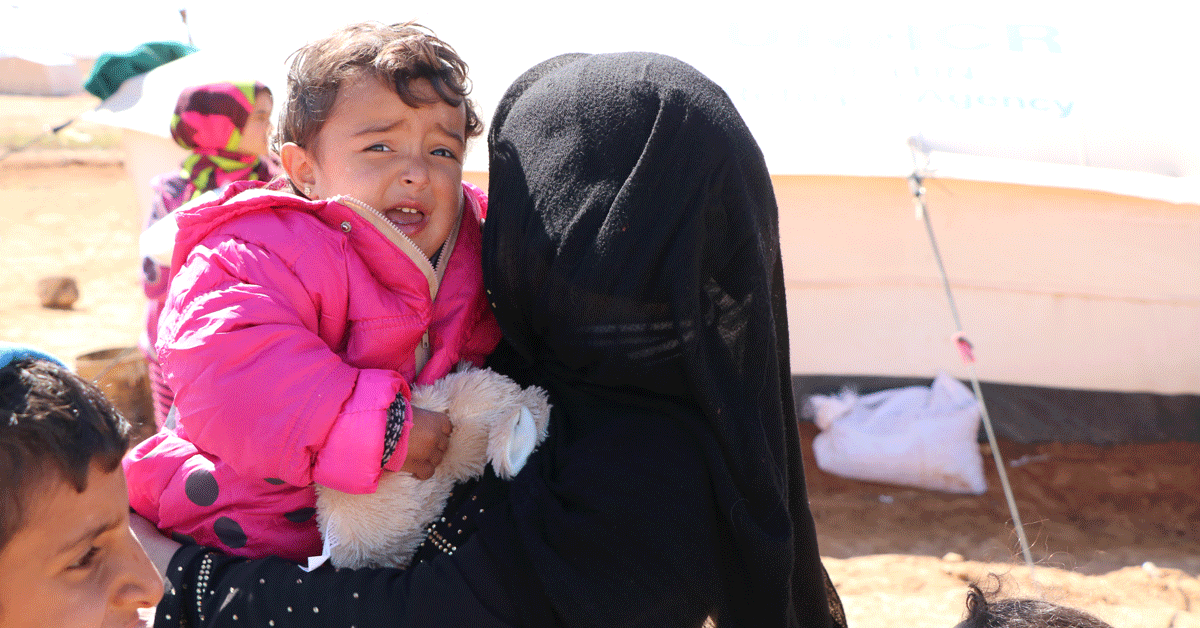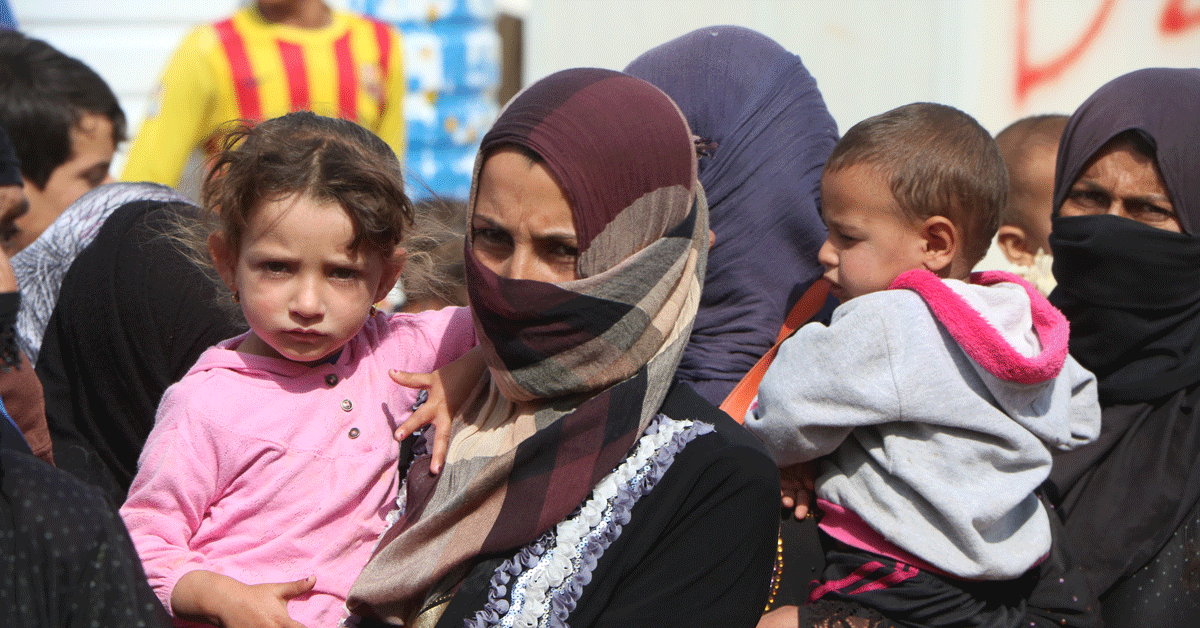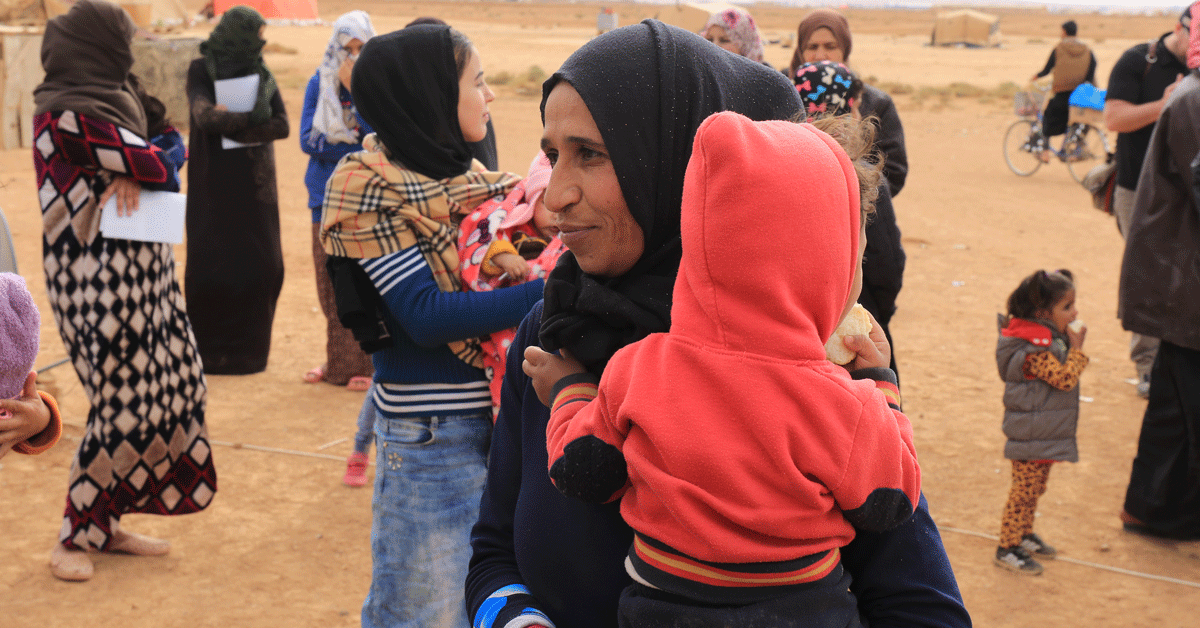After months in a refugee camp, a woman we’ll call Hana decided to try going home.
Home was all she thought about as she wiped dust off her children’s faces, cooked whatever food she could find, and cleaned their little spot of ground in the refugee camp.
The day that the bombs fell on her city, she had found her children, grabbed what she could, and had run. It was the smart move, the only way to ensure survival. But now that the dust had settled, Hana wanted her life back.
She had no idea what had happened to her husband, no idea if her little home was even still standing. But she had to try.
Several days later, Hana returned to the refugee camp, heartbroken and defeated.

The last thing refugees want to do is spend the rest of their lives living in a camp. These men and women want to find jobs, they want to own houses, and they want their children to go to school. Mostly, they just want the life they had before the bombs fell or the militants attacked.
Unfortunately, there’s no way to turn back time and replace what they’ve lost. And for many refugees, there’s no way to go home again.
Here are just a few of the reasons people like Hana are still refugees:
Bombs are still everywhere
Booby traps and hidden explosives were some of ISIS’ signature terrorist moves. They wanted to ensure that no matter what happened, people were hurt.
According to the United Nations Mine Action Service (UNMAS), 70 percent of mines in Iraq remain uncleared. Hidden beneath rubble in cities and villages, the explosives are a danger to anyone who comes too close.

UNMAS calls Iraq one of the most “contaminated countries in the world,” and they are taking steps to clean up the cities as quickly as they can. Despite their best efforts, though, the work is slow. In the meantime, they are advocating for risk education — teaching families who do return home how to look out for danger.
But the potential explosions are enough to keep most refugees like Hana and her family away.
In comparison, the camps are relatively safe. Although necessities like food and medical care are scarce, parents at least don’t have to worry about their children accidentally triggering a bomb while they play.
Women and children are easy targets
When Hana reached Mosul, she was stopped by a military checkpoint, which is not unusual in cities still considered dangerous. But a woman traveling alone in the Middle East is not safe, especially in times of violence and war.

She asked if she and her children could enter the city. Laughing, the soldiers at the checkpoint began to harass and abuse Hana. They refused to let her pass, and one of the men said the only way she could enter was if she married him.
Her heart shattered as the men continued to hassle her. She was so close! But she had to think about her children. Her desire to keep them safe was greater than her desire for home. Grabbing their hands, she once again retraced the steps she’d made months before, this time realizing that Mosul was no longer her home.
In times of political upheaval, women and children are particularly vulnerable. Alone in the world, they face all kinds of violence and danger. While the camps aren’t always protected, women can at least find others who will look out for them.
The number of orphans has skyrocketed
It is being called “the lost generation.”
Hana’s children are fortunate enough to at least still have one parent, but many kids don’t. Any time war or violence strike a country, thousands of children are left without parents. Either abandoned or orphaned, these children are left to fend for themselves.

According to UNICEF, the number of children who have lost one or both parents in Iraq has risen to nearly 1 million.
In places like Syria — where a civil war has been raging for more than eight years — many of these orphaned children are too young to remember a time without violence and fear. They have not had a stable home or a consistent education, and they have no idea how to build a life.
In the camps, they are at least surrounded by other adults. If they went home, it would be even harder to survive all alone.
How you can help
Refugees have already faced so much, and their journey is far from over. Will you come alongside a refugee today?
Your $35 gift will multiply 5X thanks to generous corporate donations and grants. That means you’ll help provide $189 worth of lifesaving aid to refugees like Hana.
You may not be able to give them back everything they have lost, but you can make sure they have food, water, clothes, and medical care. Please give today and help a refugee start to rebuild his life.



